Baldur's Gate 3 is the first game that met me halfway in roleplaying a they/them causing mayhem, and that feels like the future of RPGs
The last game I selected my pronouns in was Call of Duty: Black Ops. At the time I chose "they/them" because I desperately wanted to see a cutscene where an Alzheimer's-addled Ronald Reagan grips my fingerless gloved hand and asks, "what are yer pronouns, soldier?" Tragically this never happened, but in Baldur's Gate 3 I now have the next best thing: a disgusting, unwashed hobgoblin rising from his skull throne, poised to strike me down—but not before taking note that I'm a they/them kind of guy.
I've long used videogames as a means to cope with both my disability and my dysphoria, but Baldur's Gate 3 is the first time I've been able to really get into roleplaying a they/them causing mayhem. It took some mods in order to perfect the appearance of my androgynous Tiefling Paladin, but once I got there, I quickly fell in love with them, and for the last few weeks it's been a struggle to end a session.
Baldur's Gate 3's pronoun options are a small thing, truly, but this step towards a wider normalization of non-traditional lifestyles is a boon for gamers who not only want to see a part of themselves on the screen, but those who get deep into character creation and roleplaying. Baldur's Gate 3's efforts at inclusion made me so enthusiastic about playing this type of big-budget RPG, they've totally upended my expectations for what character creation should be in a hundred-plus hour RPG, and set my expectations for Starfield even higher.
Goblin Sensitivity Training
My Oathbraker Amon brings a unique they/them energy to the Sword Coast: having been freed from the crushing burden of the Paladin oath imposed on them after braining one of Lae'Zel's captors with a hammer, they've been eager to explore life outside monastic devotion and all that entails. Their relationships? Incredibly messy and complicated. The party's finances? In an absolutely atrocious state. The mind-flayer parasite? Being fed as many specimens as possible to boost their psychic powers to insane heights.
It's been a blast leaning into this idea of a former hero now unbound from expectations and exploring themselves, playing up these self-destructive tendencies to the degree that it's unclear how much of this new person is Amon unchained, and how much of it is the parasite.
Amon exploring their gender identity is a huge part of this arc for them, and it's deeply satisfying to have a part of myself be portrayed in-game with respect and dignity. Still, I think there's an opportunity to go even further.
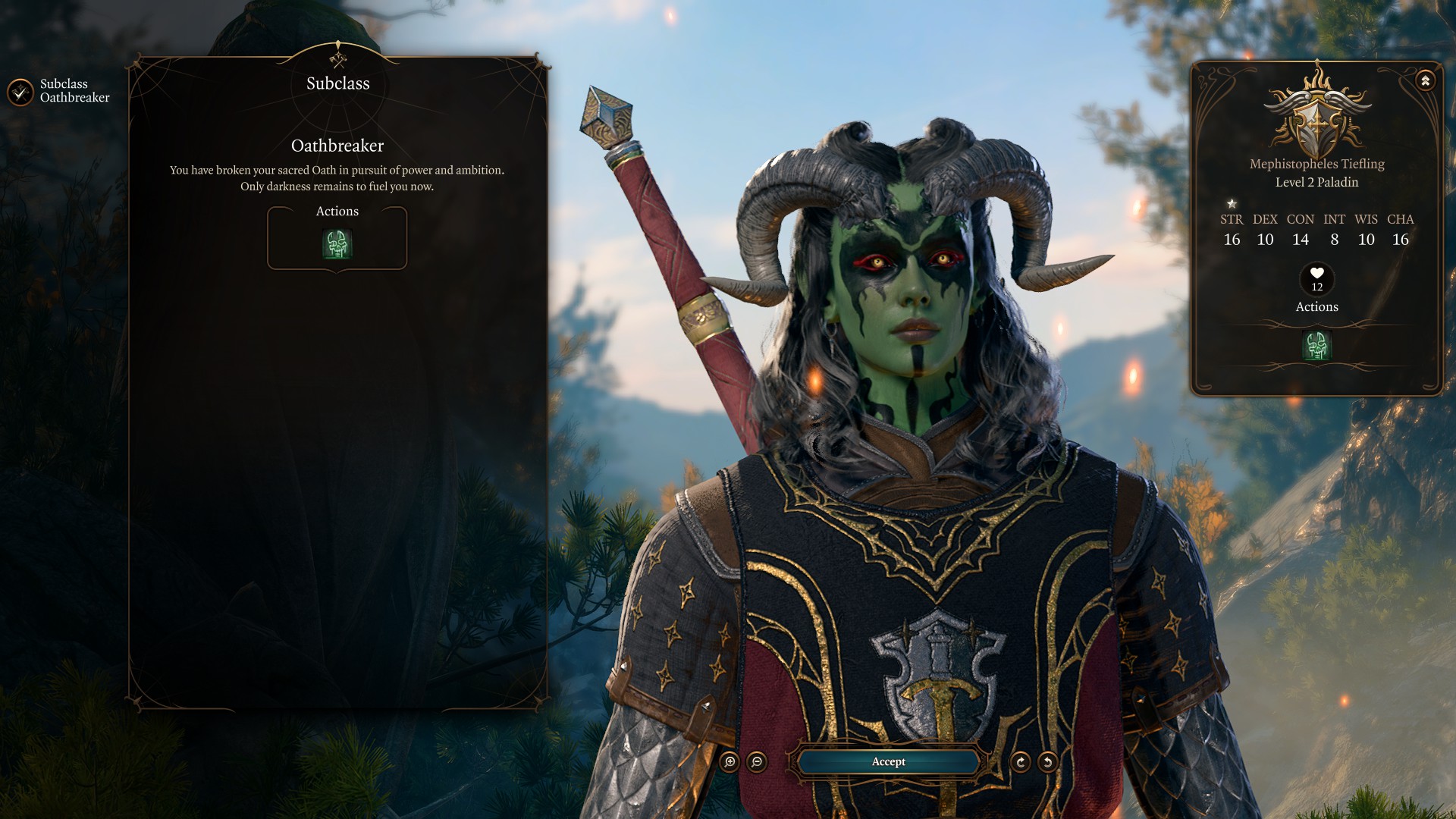
I believe there's a genuine opportunity to tackle difficult subjects like gender and disability narratively and mechanically
I was extremely impressed that Dror Razglin, the barely literate hobgoblin warlord, actually internalized the mandatory True Soul Sensitivity Training Seminars he was forced to sit through and noted my pronouns before ordering his goons to crack open my skull.
This is a fantasy world, all right—there's no getting around that in real life, there are always gonna be people that just don't get it. In D&D, I suspect hobgoblins would be part of that crowd, and thoughtful writing has the ability to do something meaningful with that reality—what if I had to pass an intimidation check to make Dror Ragzlin fall in line with my pronouns, or even had my buddy Karlach stick up for me?
Confirmed Bachelors
It's anecdotal, but literally everyone I knew who played Fallout: New Vegas played as a bisexual character at least once, in part due to the Lady Killer & Confirmed Bachelor perks both conferring a 10% damage bonus to the relevant sex. It was a critically useful early game perk combo and a favorite of my ally friends who were definitely still saying full-throated slurs back in 2010.
Fallout: New Vegas wasn't the only thing that made my friends grow up a bit, but in a recent conversation I had about representation in videogames while writing this article, it was one of the first games to come up. Damn near everyone's courier was bisexual, and that had a small but real impact on their perspectives.
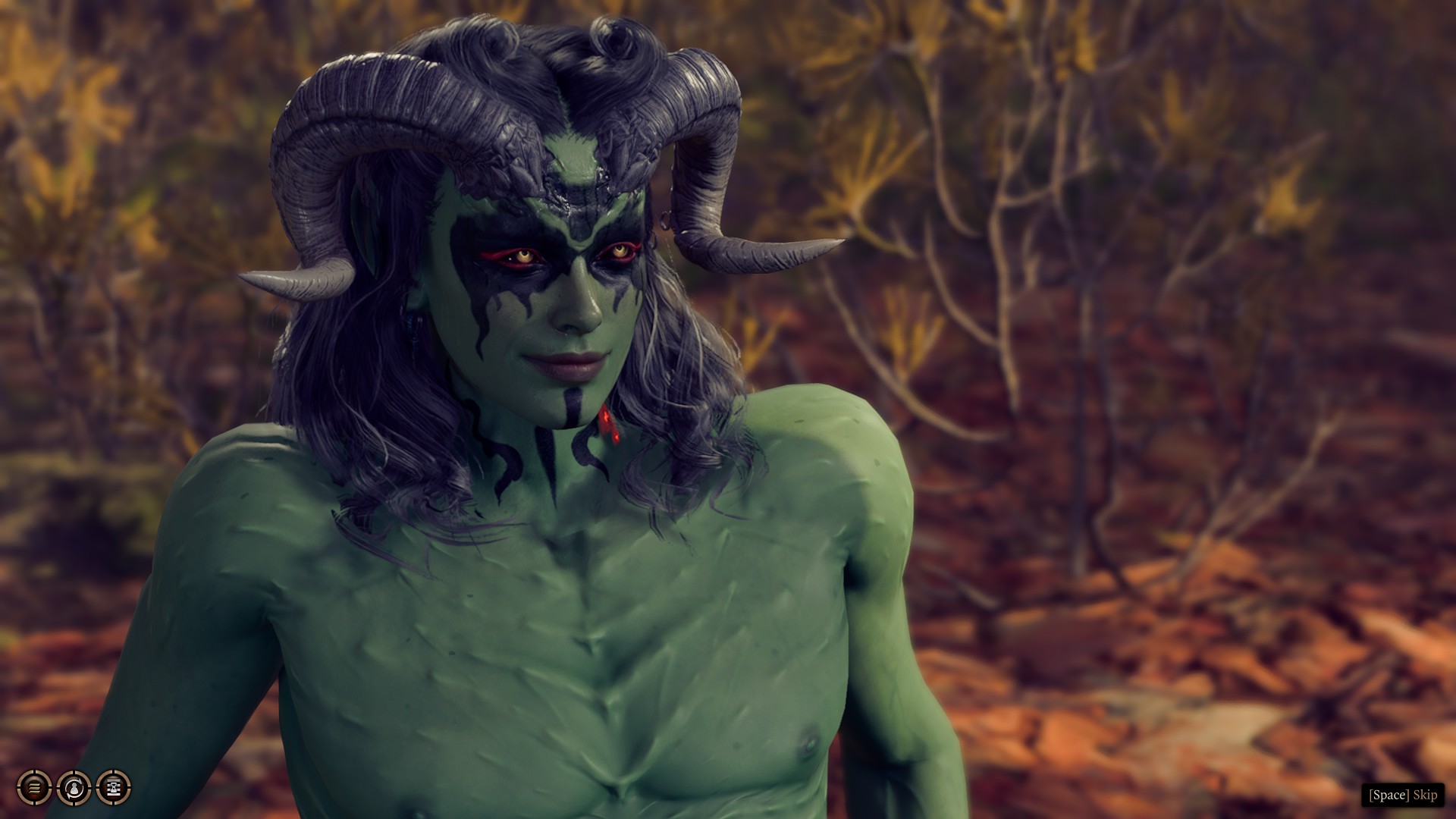
Thirteen years later with Baldur's Gate 3, I believe there's a genuine opportunity to tackle difficult subjects like gender and disability narratively and mechanically. Even having the option to raise deep conversations about identity with a party, where the reward for doing so is something as simple as an inspiration point or two, could allow for deeper narrative role playing, and incentivize players to step outside of the binary with their own character.
It's well-documented how TV sitcoms like Will & Grace played an important role in the gradual normalization of gay people in popular culture—if games are aspiring to similar virtues, then providing representation that leans into what makes games so compelling, that interactivity and immersion, feels like a no brainer.
Transhuman trouble
Baldur's Gate 3 gives me the option of getting an eye gouged out by a Jester
I found little of BG3's deep commitment to diversity and representation in the last big-budget RPG I played, Cyberpunk 2077. There's some flexibility around body type, but being shackled to binary pronouns and a voiced protagonist was a real obstacle in playing the type of character I wanted to be, a hyperpop-inspired transhumanist homebrew hacker obsessively chasing the latest and greatest cyberware. It felt that no matter how far I pushed my character, I was always getting pulled back into the orbit of CD Projekt Red's idea of V and not my own.
My character was never able to grow into something new, never able to be subtly, much less radically changed by the experience of constantly replacing my organs with questionably sourced augmentations like some cyberpunk ship of Theseus. I could never draw upon my lifetime experience within Arasaka's corporate culture beyond mere lip service, or leverage some of my top-shelf cyberware to intimidate a pathetic Heywood gangoon into backing off.
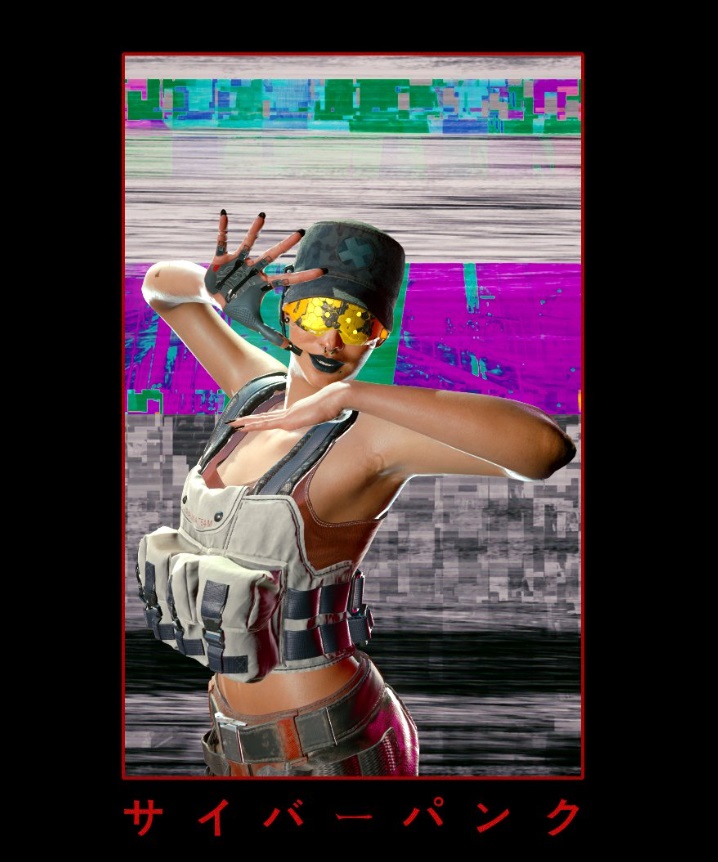
Meanwhile, Baldur's Gate 3 gives me the option of getting an eye gouged out by a Jester I saved from getting beaten to death by goblins, the results of which give my character free darksight and, of course, a scolding from Shadowheart that made the path to courtship all the more difficult.
Starfield's character creator looks to more easily allow for this kind of inspired character creation, but there's one frustrating limitation: They/Them pronouns will lock you into a feminine voice. Barring that, the walk cycle customization, pronoun options, and a bevy of flavorful background and trait options make the creation of a weird, post-gender spacethem a simple process, with you even being able to change your gender and pronouns mid-playthrough if you so choose.
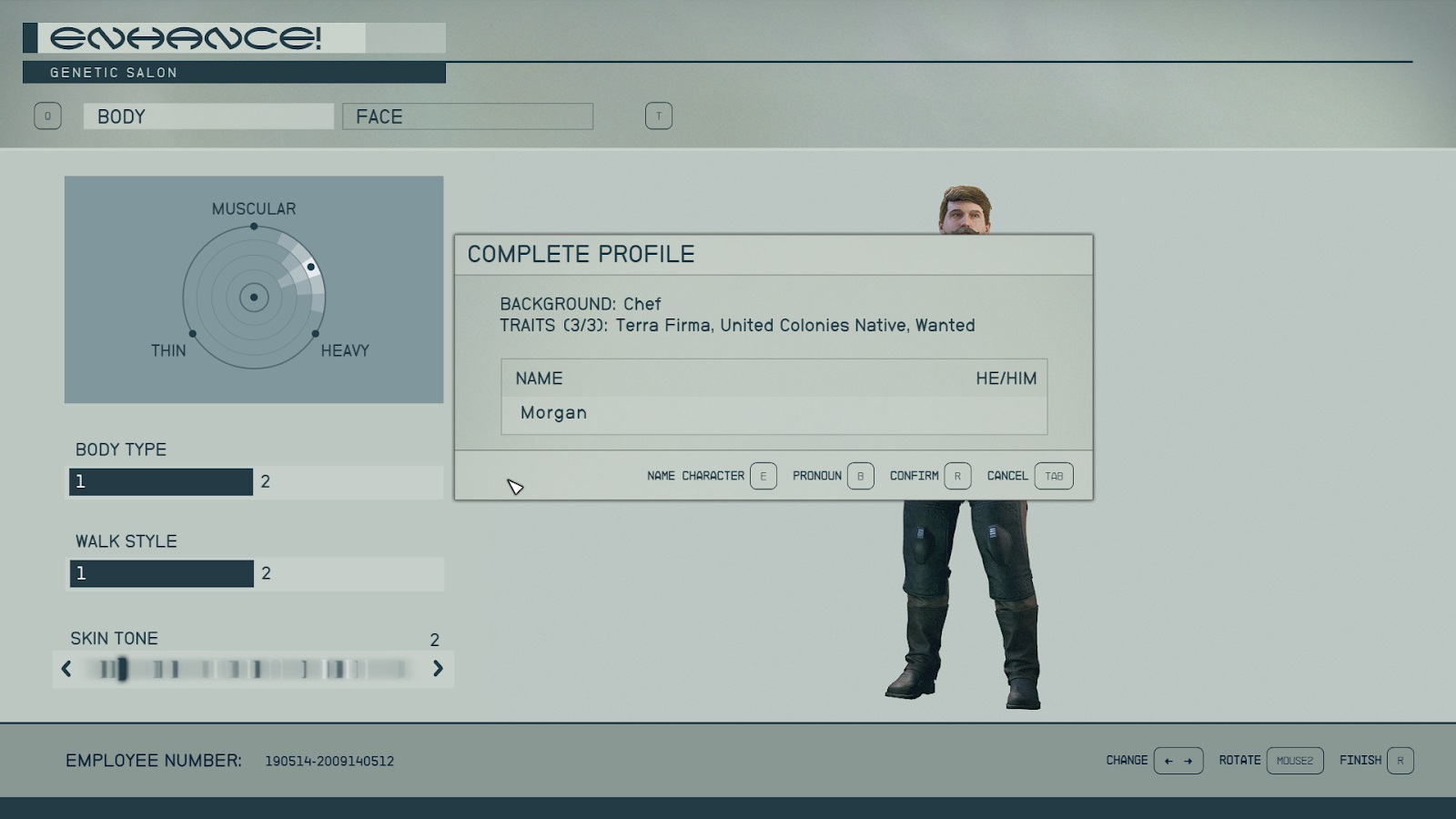
Transforming vulnerability into badass, inspired resilience is something I desperately want other RPGs to take note of
Despite going further than Cyberpunk or Starfield in embracing gender identity into its storytelling, Baldur's Gate 3 could still do so much more with inclusion of disabilities, self-inflicted and otherwise. My cerebral palsy affects my life far more than my pronouns do, and I'd like to think my dead limb is a more compelling narrative ingredient for creating a character forced to fight their way through the lawless Sword Coast.
Though they're often gated off from the player, FromSoftware's games are rife with disabled characters that utilize fleshed out, believable prosthesis to jaw-dropping effect. Gherman's wheelchair & peg leg, Sekiro's Shinobi prosthetic, and Prince Lothric & Lorian's synergetic fighting style all treat disability as not something that's to be overcome, but a critical aspect of these characters' self-actualization. They are undeniable signifiers of their personal strength and willpower.
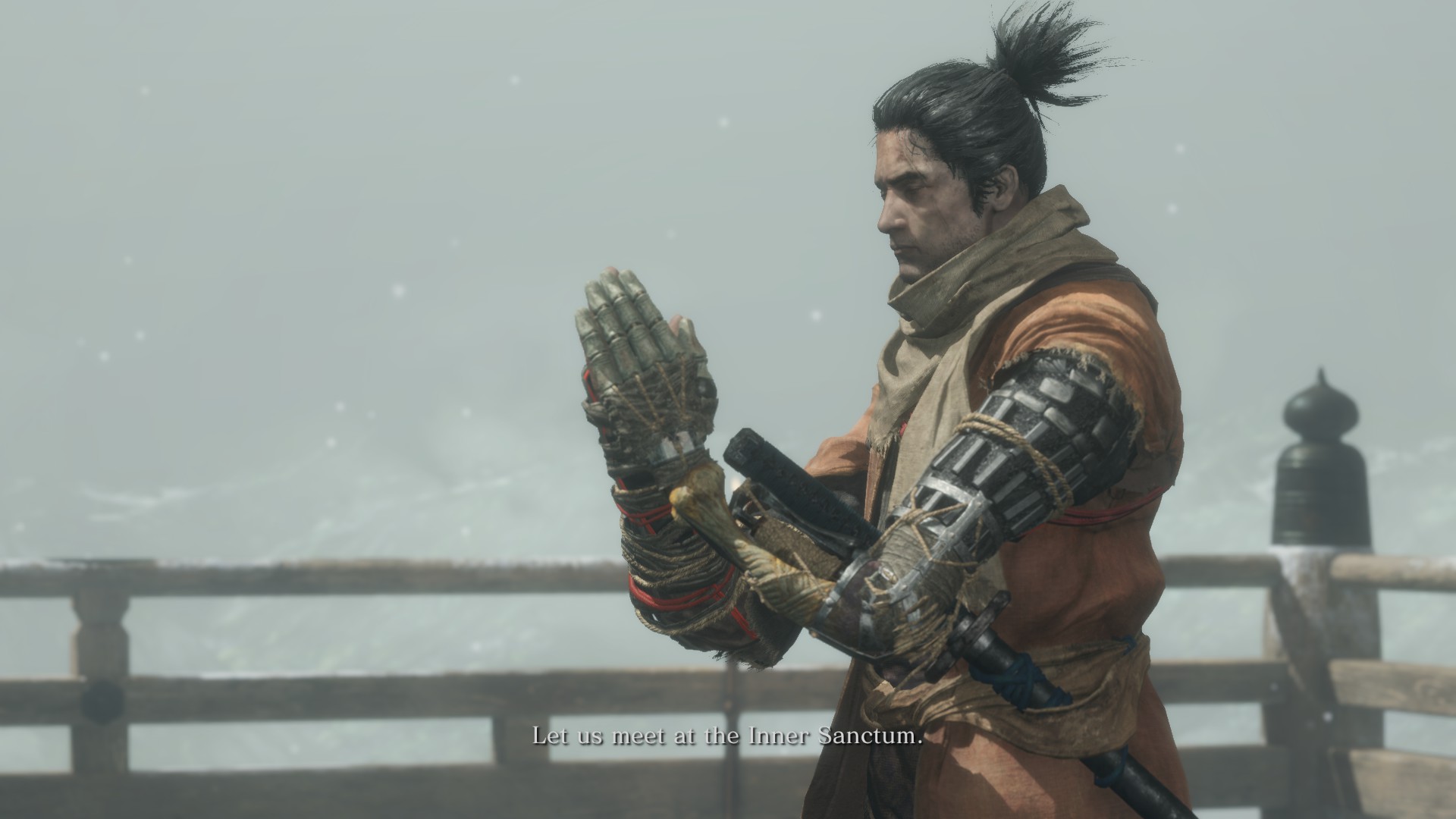
That energy of transforming vulnerability into badass, inspired resilience is something I desperately want other RPGs to take note of and incorporate. Give me a mid-game "coming out as queer" quest where those demons we wrestle with can be laid to rest with dice checks. Saddle my character with a crushing burden of trauma that has to be worked through and overcome. Hell, go all the way with Berserk analogues and let me sever a limb and replace it with a cannon gauntlet. I'll suffer a steep dexterity penalty, but also have a cannon for a hand.
Diversity in games kicks ass, but I earnestly believe there's a really incredible opportunity to move the medium forward by giving our most challenging personal stories mechanical depth, and not just lip service
Dungeons and Dragons, and RPGs in general, are so engaging because they let us be the writers of our characters. BG3 has shown both what's been missing and how much more is possible. Roleplaying will only become truer and more powerful by getting bold about inclusion, giving us the tools to use our own lives as the fuel to craft new stories for ourselves within the fantasy worlds that inspire us.

Post a Comment